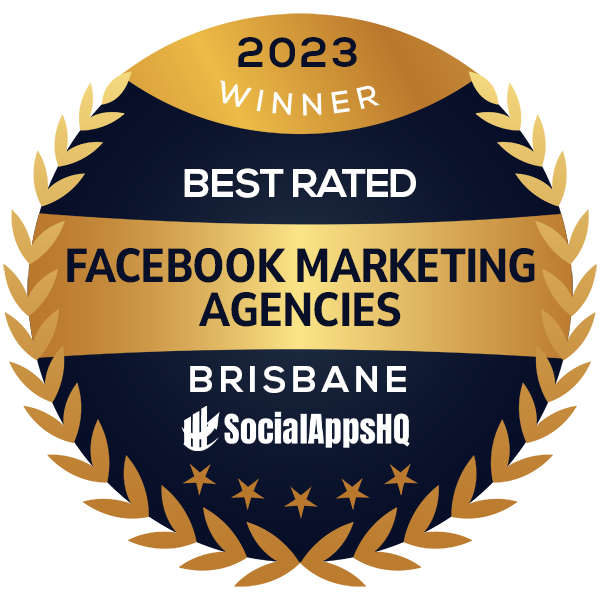Do you ever find yourself wondering how you can get more local customers through your doors? Or perhaps you’re scratching your head, trying to figure out how to outrank your competitors in local search results? Well, you’ve landed in the right place. Enter the world of Local SEO (that’s Search Engine Optimisation, if you are unfamiliar with the term).
And don’t worry; we’ll keep things jargon-free and easy to understand while sharing some professional insights to help you become a local legend in your neighbourhood. Ready to get started? Then let’s dive right in!
1. Make Your Google Business Profile Shine
First things first: have you claimed your Google Business Profile (formerly Google My Business Listing)? If not, stop everything and do that right now. Seriously, it’s that important. And if you have, give yourself a pat on the back, and let’s make it shine.
Ensure your listing contains accurate and up-to-date information, such as your business name, address, phone number, and website address. Add a captivating description and some high-quality photos to showcase your business. Finally, don’t forget to choose the right categories – it helps Google understand what you’re all about.
2. Reviews, Reviews, Reviews!
Have you ever chosen a restaurant, hair salon, or mechanic based on online reviews? Of course, you have – we all have. That’s why gathering positive reviews for your small business is essential.
Ask your happy customers to leave reviews on Google, Facebook, and other relevant platforms. And when you get them, don’t just bask in the warm glow of their praise. Respond to each review – yes, even the negative ones – with professionalism, gratitude and compassion. Actually, especially the negative ones! People will often forgive a negative review, but they won’t forgive how you, as the business owner, responded to it.
Oh, speaking of reviews, check out some of ours here.
3. Localise Your Website Content
Is your website content tailored for your local audience? If not, you could be missing out on some serious local SEO mojo. Make sure your website content reflects your location, using local keywords and phrases naturally throughout the text.
For example, if you run a bakery in Brisbane, you might mention that you’re “the best bakery in Brisbane’s CBD” or that you offer “delicious sourdough bread for Brisbanites.” You get the idea.
Just don’t overdo it. Websites written solely for search engines is so 90’s! (Best Brisbane Bread in Brisbane’s Best Bakery Near Me, anyone?)

Local SEO simply means optimising your website for local search results for improved visibility in your local area.
4. Build Local Links
Link building is a crucial component of SEO, and for local SEO, it’s all about getting links from reputable local sources. Think local news sites, blogs, and business directories and, of course, other local businesses.
How do you get these valuable local links? Start by reaching out to local bloggers or journalists and offering them an interesting story or exclusive content. Join local business associations and participate in community events. The more you engage with your local community, the more likely you are to build those valuable local links.
5. Don’t Ignore Social Media When Thinking of Local SEO
You might be thinking, “Hold on – I thought this was about SEO?” Well, it is, but hear us out: social media can indirectly impact your local SEO efforts.
Regularly engaging with your local audience on social media platforms helps build brand awareness and customer loyalty. Plus, it encourages people to visit your website or leave reviews, all of which can positively impact your local search rankings. Hint: Share a link to a different page of your website every week.
6. Optimise Your Website for Mobile – That’s Local SEO, Too!
Did you know that a significant portion of local searches happens on mobile devices? That’s why having a mobile-friendly website is crucial for local SEO success.
Make sure your site is responsive, loads quickly, and offers an excellent user experience on all devices. Trust us; your customers – and search engines – will thank you.
7. Keep an Eye on the Competition
Finally, it’s essential to keep an eye on what your local competitors are doing. What keywords are they targeting? Which websites are linking to them? Can you spot any gaps in their strategy that you could use to get the local advantage? By analysing your competitors, you can identify opportunities to improve your own local SEO efforts.
Take the time to research their online presence, content, and backlinks. This will help you discover new ideas and tactics that could boost your visibility in local search results. Remember, knowledge is power, and staying ahead of the competition is a surefire way to maximise your local impact.
There you have it – seven essential local SEO strategies that can help your small business stand out in the local search landscape. By putting these tactics into action, you’ll be well on your way to becoming the go-to business in your area.
Remember, local SEO is an ongoing process, not a one-and-done affair. Keep refining your strategies, engaging with your audience, and staying informed about the latest trends and best practices.
Now, it’s time for you to get out there and make some local SEO magic happen. Good luck, and may the (local) search engine gods be ever in your favour!
Need Local SEO? We Know Someone…
At Done Digital, we do Local SEO well. Take Rhina, for example, owner of The Eyebrow Specialist, who now ranks #1 for “Eyebrow Lamination Brisbane“.
Or Vanessa, owner of V-Hub Dance, a local dance studio in Fortitude Valley, who ranked top of Google for “Hip Hop Classes Brisbane” just 2 months after working with us.
And then there is Star, founder of Superstar Attraction, Sydney’s top-rated eyelash salon, who now ranks #1 for “Before & After Eyelash Extensions Sydney” and many other popular keywords.
But… it’s not about them, it’s about your business!
The point is, we know a thing or two about Local SEO because it’s what we do every day. And we absolutely love it!
So, if you want your business to rank top of Google in order to increase your traffic, leads and sales, give Done Digital a call. We love to help!

 Done Digital
Done Digital Done Digital
Done Digital
